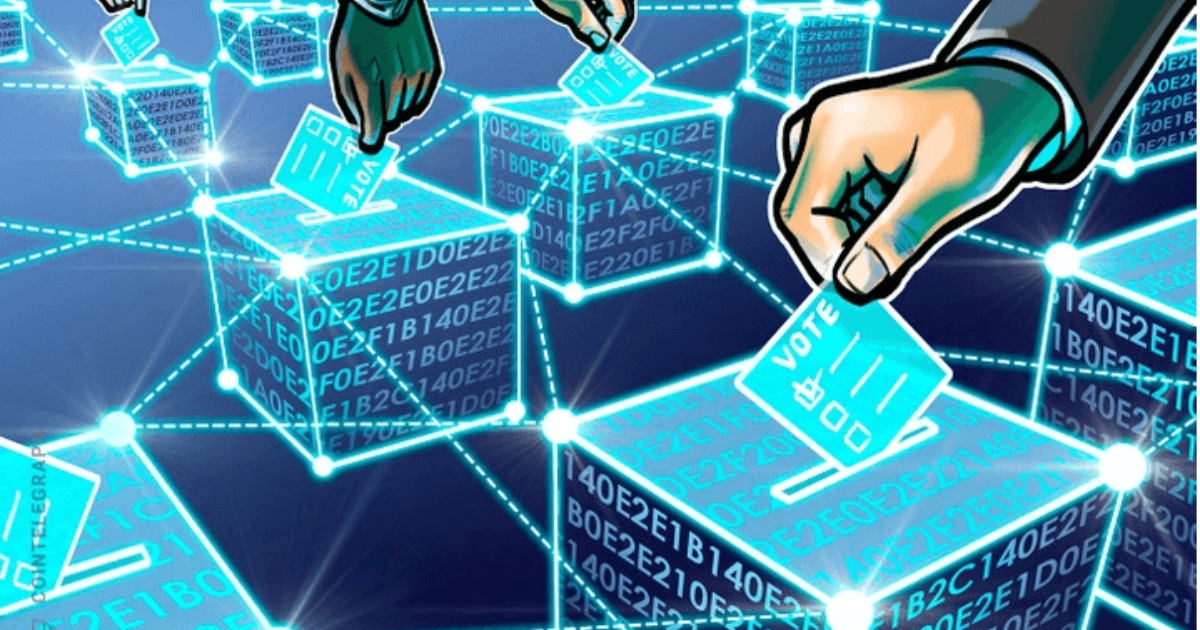What is decentralization?
Decentralization is the transfer of power, authority, control, and decision-making from centralized entities to a broader distributed network .
Decentralized networks aim to create a trustless system where the level of trust necessary between network participants is minimal. A trustless system is encouraged by distributing decision-making and resources among numerous participants, avoiding the risk of a small number of bad participants taking control of the network.
The concept of decentralization is complex and multifaceted . It can take various forms:
- Political decentralization promotes greater participation to give decision-making power to citizens. Democracy, for example, is a decentralized political system;
- Administrative decentralization aims to distribute authority, responsibility and financial resources;
- Fiscal decentralization pursues financial sustainability and decentralization through self-financing, taxes, fees, loans, etc.;
- Economic decentralization promotes economic liberalization and market development policies that give resources and responsibilities, such as decision-making power, to multiple market participants rather than a single centralized entity.
Here we will focus on the definition of decentralization in blockchain and cryptocurrencies.
What does decentralization mean in Blockchain?
Decentralization is a fundamental philosophy in the world of blockchain development services and cryptocurrency . To know why decentralization is important for public blockchains and cryptocurrencies, we have to understand why Bitcoin was created .
Bitcoin is the oldest and most valuable public blockchain network in the world. It was created by the pseudonym Satoshi Nakamoto to be a decentralized peer-to-peer (P2P) payment network powered by blockchain consulting services & technology. The Bitcoin white paper was released in October 2008, in the midst of a recession that saw banks blamed for making and repackaging subprime loans.
Users can transfer funds and make payments without going through a financial institution through the Bitcoin network. The blockchain is not owned or managed by a single entity . It remains decentralized through a network of operators called “miners” who run the network by processing and validating transactions. There is no selection process to become a miner. Anyone with Bitcoin mining hardware and funds to operate (mainly to pay for electricity) is eligible to become a miner.
The basic principles of decentralization – autonomy, transparency, censorship resistance and privacy – are at the heart of Bitcoin, Ethereum and most other public blockchains. These public blockchains operate as open networks. Anyone with an Internet connection can access the network and its ecosystem of applications built on top of it.
How do public blockchains achieve decentralization?
Public blockchain networks aim to maintain their decentralized operations by:
- Distributed Networks: Bitcoin and Ethereum operate as distributed networks in which information and tasks are shared across multiple nodes or participants. The network of nodes operating simultaneously with each other ensures that the blockchain remains decentralized, secure and resistant to single points of failure.
- Peer-to-peer (P2P) architecture: Public blockchains use a P2P architecture that allows participants to communicate and interact directly with each other. The peer-to-peer approach eliminates dependency on centralized entities such as web service providers.
- Autonomy and empowerment: Public blockchains promote decentralization by empowering users and giving them control over their assets and data. For example, users do not need a bank account to store their cryptocurrencies; Users are not required to provide personal data to use decentralized applications; Users can choose to remain anonymous; Blockchain transactions are transparent so that anyone can verify the validity of the transactions.
Decentralized Finance or Decentralized Finance (DeFi)
Decentralized finance (DeFi) is a revolutionary field of blockchain technology applications that aims to disrupt and disrupt traditional financial systems . Its goal is to expand the use of decentralized public blockchains beyond payments between individuals. Leveraging smart contract technology, users can now perform any number of financial actions, such as staking to earn interest, borrowing and lending funds, and more on public blockchain development company networks.
Ethereum pioneered the technology that enabled DeFi: smart contracts. These are self-executing computer programs that developers use to launch tokens, create NFTs , and create decentralized applications (dApps) that work autonomously. These applications operate under the principles of transparency, immutability and trust , giving users full control over their funds and financial activities.
With DeFi, users do not have to go through credit score checks or other lengthy procedures to apply for a loan. Remittances abroad are quick and easy, as users do not have to rely on a network of individual banks and payment systems to send and receive funds. Cryptocurrency trading is available 24/7 through decentralized exchanges (DEX).
Disadvantages of decentralization
- Limited adaptability: Decentralized systems may face scalability limitations due to the greater number of participants required to contribute to decision making. The need to reach consensus among all network participants can also slow down proposals to improve eadaptability.
- Complexity of coordination : An open and diverse network with thousands of anonymous participants may have difficulty coordinating and reaching agreement on various issues.
- User Responsibility: Blockchain users are expected to be responsible for securing their assets, managing their private keys, and protecting themselves against hacks and theft. No one can help in case of loss of a private key.
- Security risks: Decentralized systems have no regulatory oversight, which can make their users vulnerable.
- Governance: Achieving full decentralization is difficult due to the complexities of achieving decentralized governance.
Conclusion
The narrative around achieving decentralization through public blockchains and cryptocurrencies has been stuck in our heads for the last decade. But the concept of decentralization is complex. Even major public blockchains, such as Bitcoin and Ethereum, face questions about the extent of their decentralization.
Public blockchains remain plagued by the dilemma of choosing between massive scale or true decentralization.
Author bio
Jayasuriyan, a Digital Marketing Expert, excels in blockchain consulting service solutions at Blockchain X. Holding degrees and certifications in digital marketing, he blends expertise with innovation. Jayasuriyan’s current role involves crafting cutting-edge strategies, and his published works underscore his commitment to advancing the intersection of blockchain and digital marketing.



